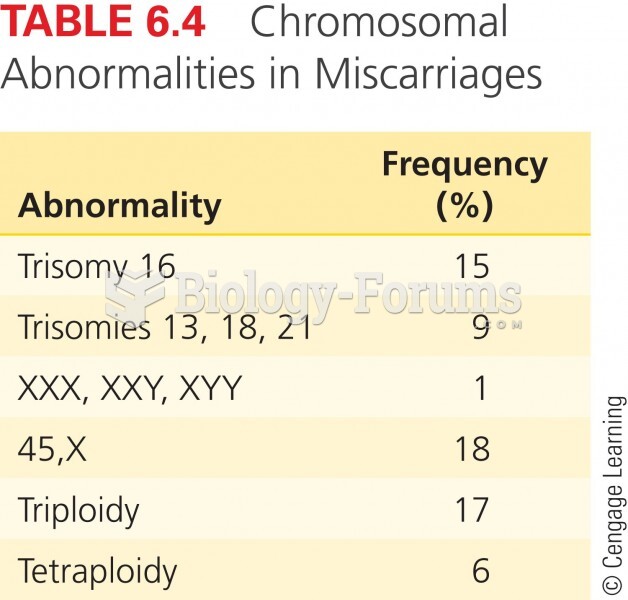|
|
|
In the ancient and medieval periods, dysentery killed about ? of all babies before they reach 12 months of age. The disease was transferred through contaminated drinking water, because there was no way to adequately dispose of sewage, which contaminated the water.
More than 34,000 trademarked medication names and more than 10,000 generic medication names are in use in the United States.
There are over 65,000 known species of protozoa. About 10,000 species are parasitic.
Acute bronchitis is an inflammation of the breathing tubes (bronchi), which causes increased mucus production and other changes. It is usually caused by bacteria or viruses, can be serious in people who have pulmonary or cardiac diseases, and can lead to pneumonia.
The people with the highest levels of LDL are Mexican American males and non-Hispanic black females.







